eBay in talks to sell Gumtree
The California tech company is in talks to sell its classified-ads businesses, including Gumtree.
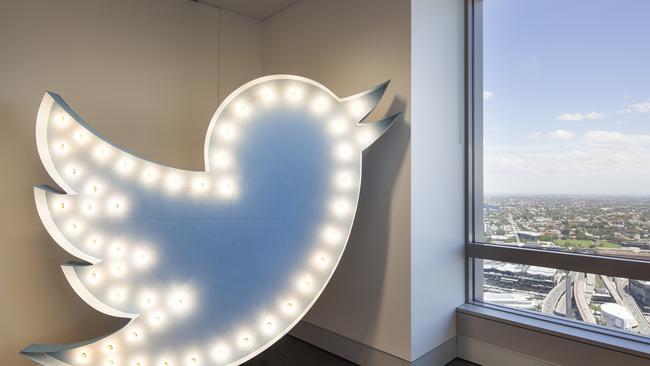
Welcome to The Download, The Australian’s technology blog for the latest breaking tech news.
4.10pm: eBay in talks to sell Gumtree business
EBay is in advanced talks to sell its classified-ads business - including Australia’s Gumtree - to Norway’s Adevinta ASA, according to people familiar with the matter, as the online auction pioneer seeks to refocus on its core marketplace business.
A cash-and-stock deal could be announced as soon as Monday assuming the talks don’t fall apart, the people said. The price of the deal couldn’t be learned but the eBay unit was expected to sell for roughly $US8bn ($11.44bn) or more, some of the people said.
San Jose, California-based eBay, once a highflying internet conglomerate with brands like PayPal and StubHub, has been unwinding that structure under pressure from activist investors who argued it shrouded eBay’s value. The classifieds unit is one of the last remaining businesses outside the core after the company struck a deal to sell its StubHub ticketing division last year.
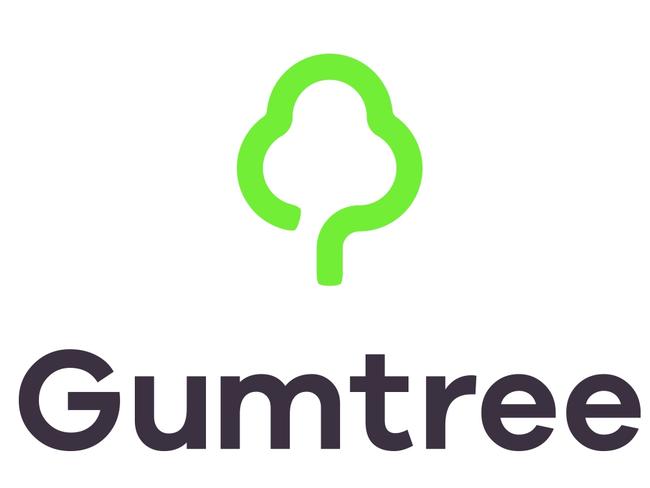
EBay’s classifieds unit primarily operates internationally across Canada, parts of Europe, Africa, Australia and Mexico. Its platforms allow users to post goods and services in their local communities, similar to Craigslist in the U.S. Last year, the division produced $1.1 billion in revenue, compared with the $7.6 billion its marketplace business generated.
EBay has been seeking to sell the unit since around February, when The Wall Street Journal reported that it was up for sale.
Adevinta oversees digital marketplaces in 16 countries, with a significant presence in parts of Europe, South America and Mexico. By acquiring the eBay business, Adevinta would significantly expand its presence in Germany, one of Europe’s biggest economies, where its current operation doesn’t hold a dominant position, according to the company’s website.
EBay’s core marketplace business has suffered amid growing competition from Amazon.com, the US’s biggest online retailer.
Dow Jones
David Swan 2.45pm: Australians over 55 lose more than $14m to scams
Australians over the age of 55 have lost more than $14m over the past six months in investment scams according to Scamwatch, a website run by the Australian Competition & Consumer Commission (ACCC).
Delia Rickard, deputy chair ACCC, says: “When combining our data with bank data, over $126m has been lost to investment scams over the past 12 months, and a lot of scams in addition to this are not reported.”
The typical investment scam is an out of the blue phone call offering some investment opportunity with great returns and low risk.
Historically, they would send a glossy prospectus in the mail however the scams have evolved and today they direct the investor to a refined website that appears to be legitimate.
Chris Griffith 1.45pm: VPN user data leak uncovered
People use virtual private networks (VPNs) for a secure link from home to their workplace and to enhance their privacy by disguising their IP addresses when they access the internet. So when the data held by VPN vendors reportedly is leaked, there is much concern. And when it involves Hong Kong VPN companies, concern is compounded by fears that VPN usage could be exposed to authorities of users in Hong Kong and mainland China.
Such appears to be the case with VPN provider UFO VPN and six others. Comparitech reports that an 894GB database was discovered online unsecured (without a password) involving UFO VPN. “Bob Diachenko, who leads Comparitech’s security research team, uncovered the exposure, which affects both free and paid users of UFO VPN. He immediately alerted the company upon discovering the exposed data on July 1, 2020”, Comparitek wrote last week.
That appears to be only the start of the problem with The Register and others claiming a total 1.2TB of private information has been leaked involving seven VPNs.
UFO VPN responded to Comparitek, saying none of its data had been leaked. “Due to personnel changes caused by COVID-19, we’ve not found bugs in server firewall rules immediately, which will lead to the potential risk of being hacked. And now it has been fixed,” it said to Comparitek.
However, Comparitek says that based on the evidence at hand, it believes the user data contained account passwords in plain text, VPN session secrets and tokens, IP addresses of user devices and the VPN servers they connected to, connection timestamps, geo-tags, device and operating system characteristics, and URLs.
Comparitek says that while it discovered the database, it doesn’t know if unauthorised parties accessed the data while it was exposed, however its research showed that hackers can find an attack databases within hours of being made vulnerable.
Whatever the case, if you are a VPN user, especially in Hong Kong and China, you might have a sick feeling in your stomach thinking that such an event may have occurred.
David Swan 1.15pm: Cisco CTO departs after 21 years
One of Australia’s most experienced tech executives Kevin Bloch is leaving Cisco, after serving for 12 years as the company’s local chief technology officer and nine in other senior roles with the company.
The exec, who landed large corporate deals with Telstra and IAG and established Cisco‘s first innovation centres in Sydney and Perth, is starting up a new advisory firm Bloch Advisory Pty Ltd.
“I have been fortunate to be part of an incredible company, have worked with visionary leaders and led teams of talented, committed individuals and now I’m excited to be establishing my own technology advisory company,“ he said in a statement.
“My goal is to help organisations make strategic investments in innovation, to scale and commercialise their technology and, where appropriate, to export it to the world.”
Mr Bloch will leave Cisco on July 24.
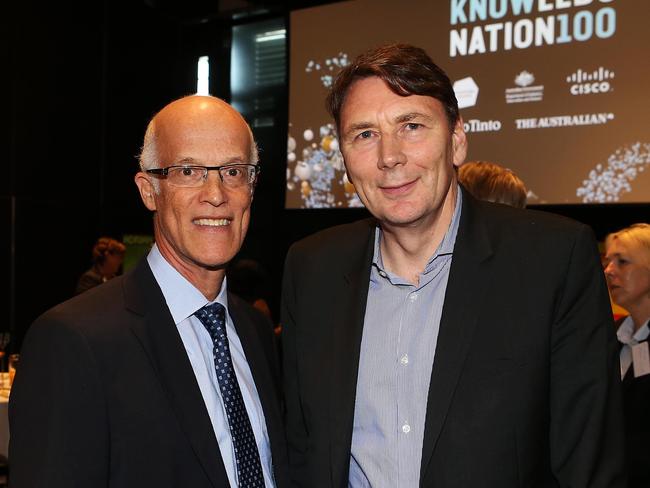
“Being at the forefront of tech, I have witnessed what the most advanced companies in the world are doing with Artificial Intelligence and automation and I am keen to share those insights with others. These technologies are the future and it is important to understand why and how organisations can harness the benefits to drive innovation and ROI,” he said.
“Global leaders routinely invest 10-30 per cent of revenue in R & D. In Australia, we typically invest less than 5 per cent.
“This paucity of investment is costing us our place on the global leaderboard of innovation and it’s only going to get worse unless we seriously address this systemic lack of investment in our tech innovators.”
12.00pm: Twitter disables Trump tweet
Twitter disabled a campaign-style video that President Donald Trump retweeted on Saturday, citing a copyright complaint.
The video, which included music from the group Linkin Park, disappeared from the president’s Twitter feed late Saturday with the notification: “This media has been disabled in response to a report by the copyright owner.”
Twitter removed the video, which Trump had retweeted from White House social media director Dan Scavino, after it received a Digital Millennium Copyright Act notice from Machine Shop Entertainment, according to a notice posted on the Lumen Database which collects requests for removal of online materials.

Machine Shop is a management company owned by the rock band Linkin Park, according to its LinkedIn page.
“We respond to valid copyright complaints sent to us by a copyright owner or their authorised representatives,” a Twitter representative said in an email statement.
The White House did not immediately respond to a request for comment.
Twitter began challenging Trump’s tweets in May and has repeatedly clashed with him since. The social media company has several times disabled or commented on tweets by the president because of what it said were copyright complaints or violations of a policy against threatening violence.
Twitter removed an image the president tweeted on June 30, which included a picture of Trump, because of a complaint from the New York Times, whose photographer had shot the image.
The company also put a tweet from the president behind a warning label in late May, saying that he had violated its rules against “glorifying violence” when he advocated that Minneapolis authorities be tough in responding to protests over the death of George Floyd.
Reuters
David Swan 9.30am: Catapult kicks revenue goals
ASX-listed sports tech outfit Catapult has posted revenue of $100m for FY20 and positive free cash flow a year earlier than expected, six months after it got a new chief executive.
Catapult, which last week appointed former Amazon executive Chris Cooper as its chief operations officer, posted its unaudited FY20 results Monday morning, with its earnings before interest, taxation, depreciation and amortisation expected to be between $11.5m and $12.5m.
“Catapult management adopted a conservative approach by instituting cost control measures and managing working capital. This ensured that the company maintained a strong cash position, while minimising disruption to the business,” the company said in a statement.
“Catapult’s subscription-based revenue performed better than anticipated, enabling management to deliver positive cash flow ahead of plan.”
Catapult is based in Melbourne, and makes GPS-based devices for elite athletes to track and measure their performance.
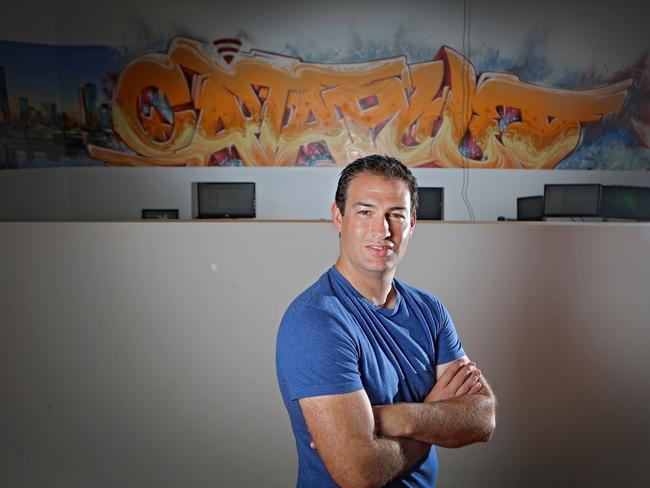
The company‘s new chief executive Will Lopes took the top role in November, after the company ousted former boss Joe Powell last February.
“I am pleased to deliver positive free cash flow a year earlier than expected, demonstrating Catapult’s operating leverage that our SaaS model enables. These results demonstrate that we can control costs and investment to generate cash, and the potential this gives the Company as we grow. As I stated when presenting our 1H20 results, we will continue to invest in customer solutions with a lens that maximises long-term free cash flow,“ Mr Lopes said in a statement.
“I am also pleased that many of our clients have returned to play and we assisted them with a number of innovations, including in-home training and contact tracing solutions.
“While we expect the sales impact of COVID-19 to continue for some time, our pipeline remains strong for FY21. The experience level of our executive team coupled with the dedication of our staff, has positioned us to effectively navigate this period, delivering solutions and support to our customers.
“Six months into the role of CEO I am more excited than ever about our opportunity to deliver strong growth and cement our position as a global leader in the sports technology industry.”
Chris Griffith 8.00am: Twitter hackers stole personal data
We thought Twitter users might have got off lightly in last week’s unprecedented hacking event by not having their personal details stolen. Hackers seemed more intent on hijacking accounts to send out fraudulent tweets soliciting Bitcoins. That’s bad enough.
However an investigation by Twitter found that in some cases, account information was stolen too, and the investigation is ongoing.
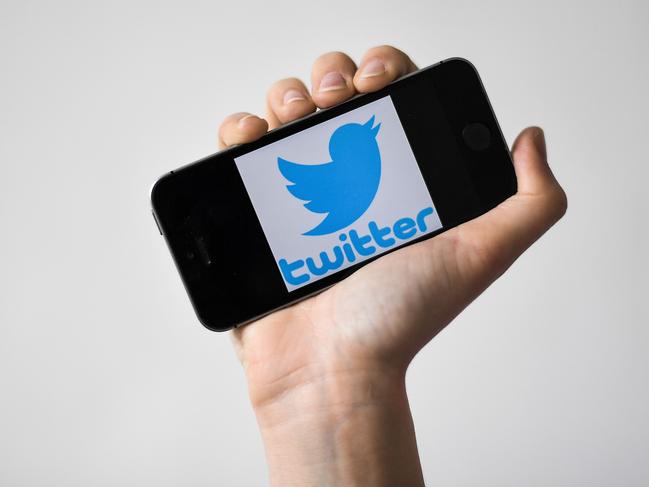
“As of now, we know that they (hackers) accessed tools only available to our internal support teams to target 130 Twitter accounts. For 45 of those accounts, the attackers were able to initiate a password reset, login to the account, and send tweets”, says Twitter support.
“For up to eight of the Twitter accounts involved, the attackers took the additional step of downloading the account’s information through our ‘Your Twitter Data’ tool. We are reaching out directly to any account owner where we know this to be true.
“In cases where an account was taken over by the attacker, they may have been able to view additional information. Our forensic investigation of these activities is still ongoing.”
Hackers were able to view personal information such as email addresses and phone numbers.
Twitter says it is co-operating with law enforcement authorities. The FBI and New York last week confirmed investigations.
It’s a damning admission by Twitter that hackers obtained access to tools used by its internal support teams. Somehow using spear-phishing techniques, staff were manipulated into compromising the company’s internal security.
“The attackers successfully manipulated a small number of employees and used their credentials to access Twitter’s internal systems, including getting through our two-factor protections,” says Twitter in a blogpost.
It augers badly for Twitter as the US election looms. Is Twitter confident that accounts will not be hijacked for political use, or Twitter compromised, given it is now a key venue for political discussion with President Donald Trump a prolific user? How do we know that other hacking groups haven’t already compromised Twitter’s defences, and are just laying low for later in the year?
Twitter says it is determining “longer-term actions” that it should take to improve security. “We have multiple teams working around the clock focused on this and on keeping the people who use Twitter safe and informed,” it says.
7.50am: Disney slashes Facebook ad spending
Walt Disney Company has dramatically slashed its advertising spending on Facebook, according to people familiar with the situation, the latest setback for the tech giant as it faces a boycott from companies upset with its handling of hate speech and divisive content.
Disney was Facebook’s top US advertiser for the first six months of 2020, research firm Pathmatics estimates. It joins hundreds of other companies that have paused spending, including Unilever PLC, Starbucks, Ford Motor, Verizon Communication and many small marketers.
Civil-rights groups including the Anti-Defamation League and NAACP called on advertisers to pull ad spending for July, arguing Facebook hasn’t made enough progress enforcing its policies on hate speech and misinformation.
Some brands paused spending for longer stretches; the time frame for Disney’s pullback wasn’t clear. Unlike many other companies, Disney didn’t make a public announcement that it was cutting back on Facebook, but instead shifted advertising plans quietly.
The Wall Street Journal
Chris Griffith 7.45am: Google donates $4m to bushfire crisis recovery
The pandemic has overshadowed last summer’s devastating bushfires, but many people still suffer, living in makeshift accommodation having lost their homes. Many grapple with ongoing financial and material loss.
Google in Australia says it has set-up an Australian Crisis Response and Recovery Fund with more that $4m to be spent over the next three years. It says the fund will support projects that use technology to build future preparedness and long-term resilience to bushfires and other crises.
“Through the new Crisis Response and Recovery Fund we will work with the Australian Government, academia, non-profits and community groups to find and support projects that use emerging technology, particularly AI (Artificial Intelligence) to help with crisis response, preparedness and resilience.”
Projects will be assessed by a panel of technology experts.



To join the conversation, please log in. Don't have an account? Register
Join the conversation, you are commenting as Logout